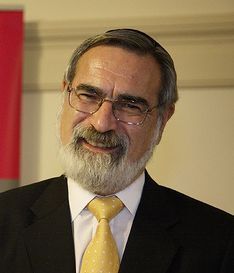 Everything you need to know about today’s coverage of Israel and the Mideast. Join the Israel Daily News Stream on Facebook.
Everything you need to know about today’s coverage of Israel and the Mideast. Join the Israel Daily News Stream on Facebook.
Today’s Top Stories:
1. Al Jazeera reports that Yasser Arafat died of radiation poisoning, prompting Palestinian officials to tell AFP they seek an international investigation modeled after the UN’s inquiry into the Rafik Hariri assassination. The PA already approved exhuming Arafat‘s body.
I still suspect Rachel Corrie’s parents.
2. The Palestinians are pushing for more World Heritage status sites listed under their jurisdiction. According to AP, the wish list of sites includes Hebron’s Tomb of the Patriarchs, and Mount Gerizim — location of Joseph’s Tomb. Last year, Hebron Mayor Khaled Osaily said that UNESCO will help bar Jews from praying at the Tomb of the Patriarchs.
3. A Syrian news anchor employed by state-run TV defected. Ghatan Sleiba also told The Guardian he had also provided intelligence to rebels for months.
What we were doing was not reporting. It was simply acting as the tongue of the regime. I stayed as long as I could to help the revolutionaries, but I couldn’t take it any more.” . . .
Sleiba said that before interviews he regularly gave people answers to questions he was about to ask them. “Those answers and the subjects of things to talk about were given to us by the head of the Ba’ath party in the area, or by the political security division.”
Israel and the Palestinians
• Jerusalem Post: The PA’s unable to pay its June salaries on time:
The PA used to cover the usual $1.2b. deficit in the budget from donor money.
However, international aid has declined in recent years, with donors – particularly Arab states – not committing to their pledges, forcing the PA to take out loans from national and international banks.
• Protests against the PA continue in Ramallah. AFP picks up on the story, noting that journalists were beaten at Sunday’s demonstration. Reuters is conspicuously absent — Where’s Reuters on its own photographer’s beating?

• Britain’s Chief Rabbi, Jonathan Sacks, expressed his concern over the Church of England’s possible support for an anti-Israel organization. This from the Times of London (paywall):
The Church’s General Synod, which begins in York on Friday, will be asked to back a private member’s motion supporting the “vital work” of the Ecumenical Accompaniment Programme in Palestine and Israel (EAPPI), which was set up at the request of the World Council of Churches.
It will be asked to encourage parishioners to volunteer for the programme and to urge churches and synods to make use of “the experience of returning participants”. . . .
“The work of EAPPI does not provide its participants with a full reflection of the Arab-Israeli conflict. It presents a one-sided narrative on a complex and difficult issue. It thus fails the test of natural justice: Audi alteram partem, ‘Listen to the other side.’ By minimising Israel’s well-founded fears, it will not advance the cause of peace or an end to the conflict.”
Voices within the Presbyterian church are also speaking out against their own divestment talk. Rev. John Buchanan (Pittsburgh Post-Gazette) argues that “Making Palestinians prosperous is a surer path to peace than hobbling Israel.”
• Moran Stern (The Atlantic) assesses the relative calm taking hold between Israel and Hamas.
• Food for thought from Beirut’s Daily Star:
Leaders in the Arab world have fed their population on rhetoric about Palestine and the restoration of the Palestinian rights, to such an extent that those countries’ failures economically and socially were blamed on their preparation for the great battle of liberation.
These archaic dictatorships stayed in power long beyond their welcome, armed with emergency powers and economic policies that, rather than delivering the wealth they promised, instead produced only poverty.
Yet the Arab people persevered in the belief that all that was done was done in the name of Palestine.
Year after year, incident after incident this has proven a misguided belief.

